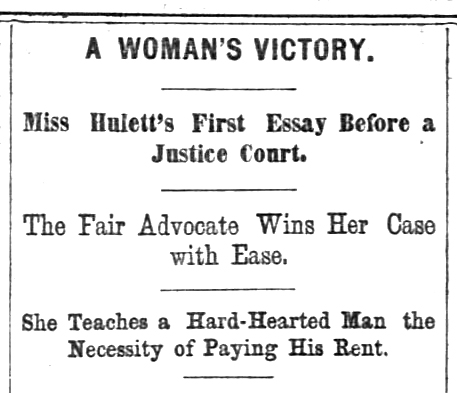New Lenox business owners Jeffery Regnier and Greta Keranen said their lives were turned upside down after officials raided their home and businesses in 2023 while investigating them for money laundering.
Regnier said the investigation began due to a $750,000 cash deposit made to his bank, which he says came from a large spike in gun sales at his store, Kee Firearms and Training in New Lenox, during the COVID-19 pandemic.
Regnier, who ran unsuccessfully in the 2022 Republican primary for the 1st Congressional District, and Keranen, of Kees Construction, face 29 felony charges for fraud and theft of COVID-19 relief funds as well as other offenses, according to two indictments filed in 2023.
But the business owners filed a federal lawsuit Jan. 9 claiming Will County authorities and the U.S. Secret Service targeted them and others with “frivolous” civil forfeiture cases.
“It takes you a long time to get out the fog of just coping with your emotions of having your life blown up, and then you realize that this is systemic abuse,” Keranen said. “I’m not alone, there are people that have far less and can’t fight and cannot afford to fight and they (prosecutors) are taking advantage of it.”
Defendants in the lawsuit are the Will County sheriff’s office, U.S. Secret Service agent Cayla Coleman and unknown members of the Will County sheriff’s office and U.S. Secret Service.
Regnier and Keranen’s attorneys said Will County State’s Attorney James Glasgow’s office was not named because they do not have any facts his office engaged in any acts not judicial in nature, which would reduce its immunity from absolute to qualified.
The lawsuit alleges Coleman filed a knowingly false affidavit with the goal of achieving a search warrant that led to the seizure of four vehicles and Fidelity Investment accounts valued at $5.5 million.
The couple argues their Fourth Amendment rights were violated when law enforcement seized four vehicles not listed on the seizure warrant, which was shared with the Daily Southtown, and only lists the three Fidelity accounts and a Chase Bank account.
They also claim their 14th Amendment rights were violated because a probable cause hearing was not held after the seizure.
Their attorney, Oliver Soleiman, said the state statute is “convoluted,” explaining law enforcement must notify the state’s attorney within 60 days but also seek a probable cause determination from the court within 28 days.
“How can you have a probable cause hearing 28 days from the seizure of the property when they have 60 days?” Soleiman said.
Regnier faces 14 criminal charges that include one charge each for loan fraud and money laundering and multiple charges of theft, state benefits fraud, wire fraud and filing a fraudulent Illinois sales and use tax return.
Keranen faces multiple charges of loan fraud and charges of wire fraud, and they both face additional charges for theft by deception, forgery and burglary court records show.
Inventory in January 2023 at Kee Firearms and Training in New Lenox. (Alexandra Kukulka / Daily Southtown)
As a result of the charges, court records show authorities seized five vehicles, one of which was later returned, three fidelity investment accounts that Regnier said were valued at almost $4.4 million at the time of the seizure and $1,257 in cash.
Regnier and Keranen’s lawsuit argues the affidavit also violates their Eighth Amendment rights, which protects people from excessive fines or bail, by taking the vehicles and fidelity accounts valued at more than $5.5 million. They argue probable cause could not reasonably apply to more than $274,000 based on the contents of the affidavit, the lawsuit states.
The lawsuit alleges the Will County state’s attorney’s office worked in conjunction with the Secret Service and the Will County sheriff’s office to bring “knowingly frivolous civil forfeiture claims targeting citizens of Will County to line the pockets of the Will County State’s attorney and other Illinois government agencies.”
Under Illinois law, 65% of forfeiture proceeds go to the arresting agency, which in this case is either Will County sheriff or U.S. Secret Service, 12.5% goes to the state’s attorney, 12.5% to the state appellate prosecutor and 10% to Illinois State Police.
The funds allocated to the county’s state’s attorney must be used for cannabis and drug law enforcement, public education on drug or alcohol abuse and grants to local treatment centers, according to Illinois’ Drug Asset Forfeiture Procedure Act.
The lawsuit claims those authorities, working together, created a “de facto policy to overzealously pursue forfeiture opportunities” regardless of their legality “in violation of the constitutional rights of the individuals whose assets they seek to forfeit.”
The ongoing and widespread constitutional violations in civil forfeiture cases in Will County and across Illinois suggest a possible “widespread conspiracy, understanding or policy” that leads to the overzealous and unconstitutional prosecution of forfeiture cases, the federal lawsuit alleges.
These violations are still “ongoing, pervasive and rampant,” according to the lawsuit.
“It’s not hard to prove that it’s systemic,” said Alexander Michael, an attorney at Palos Heights law firm Michael Ettinger and Associates, representing Regnier and Keranen.
“Every time that I’ve seen a case where I heard something really egregious happened, it always came from Will County. After about four or five, I’m like, ‘You know what, there’s a pattern here,’” Michael said.
Regnier and Keranen’s criminal case was in court Tuesday to set a trial date, with the business owners eager to move forward.
Ettinger said prosecutor Mike Casson filed a motion to disqualify Ettinger from representing Regnier. In response, Ettinger filed a motion to disqualify Casson, alleging Casson improperly used confidential unemployment information from the Illinois Department of Employment Security when filing charges, violating a state law that prohibits such information from being used in court.
A trial date was not set. Court records show the case is scheduled for March 4 where the motions to disqualify each attorney will be heard.
Their attorneys said the case has been repeatedly delayed, and Will County Judge David Carlson expressed frustration in December 2023 when prosecutors submitted records nearly 10 months after the charges were filed.
“They do not want to try this case,” Ettinger said. “They can’t win it. They’re dead in the water.”
The Will County state’s attorney’s office did not return numerous Daily Southtown requests for an interview.
Soleiman said in the last few years he has seen the number of civil forfeiture cases ramp up in Will County.
In January, there were 223 civil forfeiture cases scheduled to be heard at the Will County Courthouse in Joliet. As of Jan. 29, 149 had been scheduled in February.
“Let’s be generous, and assume 30% to 40% of these are repeats. That’s still over 100 new forfeitures every single month,” Soleiman said.
Forfeiture law has long been controversial in the U.S., and in the last 10 years, has sparked civil rights discussions in Illinois.
In a 2016 report, the Illinois American Civil Liberties Union and the Illinois Policy Institute recommended reforms to the state’s forfeiture laws. These reforms were later enacted in legislation signed into law in 2017, according to the ACLU of Illinois.
Among the legislative changes was raising the government’s burden of proof from probable cause to a preponderance of the evidence, requiring public reporting of forfeiture data and adjusting the monetary thresholds for forfeiture.
However, unlike in criminal cases, people in forfeiture cases do not have a right to a publicly appointed attorney, and the evidence standard is not as high as the one used in criminal court. The legislation also allows people to lose their property through forfeiture when they have not yet been convicted of a crime, and police departments and state’s attorney’s offices still profit from forfeiture cases, according to the ACLU of Illinois.
According to the 2023 Illinois seizure and awarded assets report, compiled by Illinois State Police, more than $18.2 million in cash was seized and $16.8 million in cash and property was awarded to law enforcement that year.
Still, civil rights discussions have prompted challenges to forfeiture law that have circulated the courts.
In 2019, the U.S. Supreme Court ruled civil asset forfeiture cases are subject to the 8th Amendment in the Timbs v. Indiana case.
Plaintiff Tyrone Timbs was arrested for selling heroin, and police seized his Land Rover, which he bought for $42,000 with money from his father’s life insurance. Timbs pleaded guilty and was sentenced to home detention and probation.
However, the court later rejected the state’s request to keep the Land Rover, ruling the vehicle’s value was much higher than the maximum $10,000 fine for his crime. The court said seizing the car was unfairly excessive and violated the Eighth Amendment’s protection against excessive fines.
While civil rights activists have considered the ruling a step in the right direction, it does not specify how large a forfeiture constitutes an unconstitutionally “excessive” fine.
Joliet attorney Frank Andreano is challenging forfeiture law’s constitutionality under claims that Will County prosecutors are profiting from seized property belonging to people who haven’t committed any crimes.
Andreano’s case involves 84-year-old Almeda Cain of Richton Park, who owns a 2014 Mazda SUV. Her car was seized after Cain allowed her daughter, who, unknown to Cain had her driving privileges revoked because of a past conviction for driving under the influence, to use her car to pick up medication, court records show.
“Civil forfeiture was supposed to be for people like Pablo Escobar,” said Soleiman, representing Regnier and Keranen. “It’s not meant to take someone’s grandma’s car because their dumb son or grandson got drunk behind the wheel. It wasn’t meant to be weaponized in this way against citizens.”
The Will County sheriff’s office said it cannot comment on pending litigation.
U.S. Secret Service spokesman Joe Biesk said “as a matter of practice, the U.S. Secret Service does not comment on proposed or pending litigation.”
“Whatever is decided, I’ll know that I’ve done my best to try to advocate for more than just myself, that we have a real problem here, and that no American citizen should have to go through this,” Keranen said.
smoilanen@chicagotribune.com





